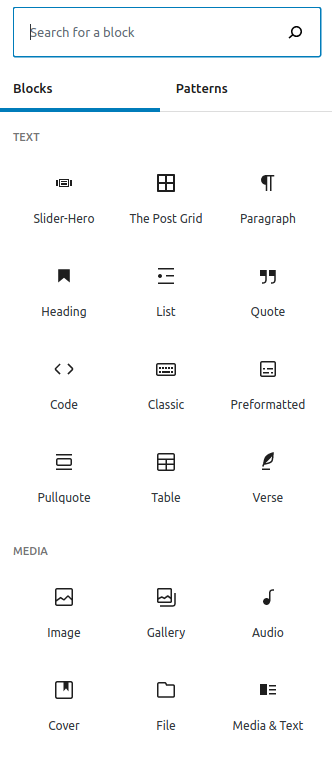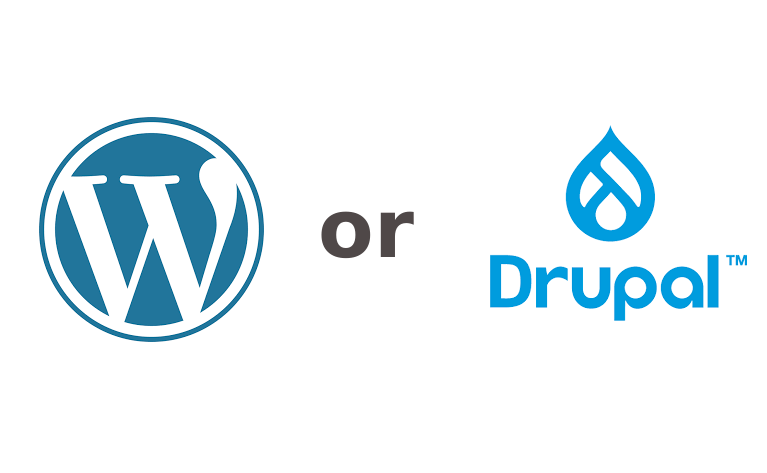
WordPress or Drupal - which is better for editors?

Who takes care of the editor experience?
It's so important that the team keeping a website up-to-date should have a smooth experience. It's surprising how many sites are put together nicely for the ordinary site visitor, only to leave the poor old Comms team struggling to use an out-dated or confusing interface. And this isn't just a nuisance for those keeping the content current. Any barrier to the editor experience typically means less new content flowing onto the site - both in terms of quantity and frequency.
Different open source content management systems have different approaches to cracking this nut. I'm going to compare two of the leaders here - Drupal and WordPress. So who looks after the editor experience better - Drupal or WordPress?
WordPress
Since WordPress 5.0 was released at the tail-end of 2018, a new editor experience called Gutenberg was featured by default. It transformed the editor experience. Gutenberg is a modern, highly flexible approach to content editing, which provides the editor with a rich suite of tools to compose their page. It allows editors to put together bespoke pages that renders content nicely on any device.Editors can now assemble pages from any number of blocks, allowing you to mix text with videos, maps with galleries. When you think about it, it's actually quite a complicated job that a site needs to achieve. These days, there are many different types of content and media, and the website needs to provide a format that will embrace different types of content, but still work on mobiles, tablets and laptops, as well as screen readers. WordPress's Gutenberg is a highly flexible tool that enables editors to do just this.
The image on the right just a few of the available blocks.
Drupal
Drupal takes a slightly different approach, which is really due to the underlying design decisions that Drupal has made.
Drupal is much more structural than WordPress. If you're designing a site in Drupal, you have to spend a lot of time setting up types of content, categories, and identifying how these thing interact with one another. This means that it lacks WordPress's highly flexible 'loose-leafed' editor experience, but instead Drupal offers a more targetted, restrained set of forms to keep data up-to-date. In other words, rather than adding any kind of content in any order as you might in WordPress, Drupal tends to see a page as a more templated piece of content, with fields identified for particular funtions ('title', 'image', 'mailchimp form' etc).
Pros and cons
We use both WordPress and Drupal for different sites, and the decision is made based on both site complexity and the shape of the team who are tasked with making content updates.
If it's a small team of fairly skilled individuals, we lean towards WordPress. The risk here is that, with a great deal of freedom, a site's overall design integrity can suffer over time.
However, if the team is broader and we want different people to update different parts of the site, or even individual pages, Drupal is often a better fit. For example, if one team is blogging and another is updating a list of services, whereas a third team is keeping up-to-date a schedule of events, Drupal is perfect.
Wrapping up
So much depends on how well the site is put together in the first place. Hopefully, your dev team will have thought deeply about who is going to maintain content on the site. They've built the roles and permissions if necessary, and restricted access to content tools at a group level if that's needed. They have chosen and built your site in the right tech, and have trained the editor team in usage. This is true whatever technology is selected - it's not what CMS is used, it's how it's developed and deployed that makes all the difference.
So while WordPress is the best fit for a skilled team wanting autonomy over content development, Drupal trumps WordPress if you have a complex set of editor roles that need to be limited and controlled more tightly. WordPress's Gutenberg is certainly unparallelled as a nice, modern and fully-featured editor toolset, whereas Drupal offers a more controlled, directed experience. As so often in the tech world - it's horses for courses.
